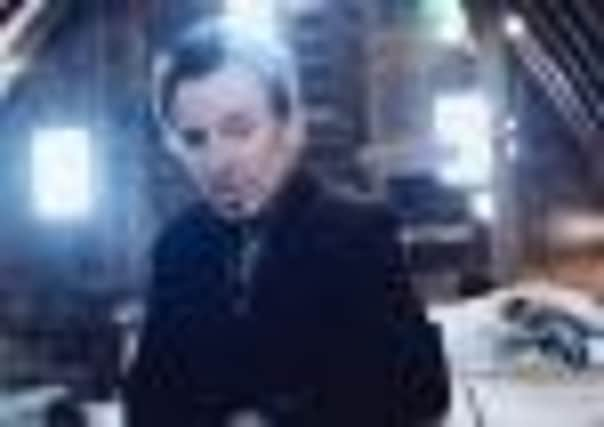Album review: Bruce Springsteen, Wrecking Ball


IN TIMES of economic uncertainty, who you gonna call? Ironically, when the jobs are going down the drain, it might be time to rally round The Boss.
Megastar man-of-the-people Bruce Springsteen is not the first of his peers to tackle the current recession in song; Ry Cooder who, like Springsteen will always be listened to because he always makes an effort to engage, made scathing and eloquent comment on his most recent album Pull Up Some Dust And Sit Down, drawing the natural comparison between this current economic crisis and the Great Depression.
Advertisement
Hide AdAdvertisement
Hide AdBut Springsteen has the ear of the greater number of listeners, and the mainstream rock chops to reach many more across the airwaves. In his middle age, he has tried the softly, softly philosophical approach; now it’s time to ram the message home with all the subtlety implied by this album’s title, weighing in with sledgehammer stadium-sized arrangements which deploy every musical weapon in his armoury.


And so Wrecking Ball finds him trading the contemplative and wistful shades of the more folk-influenced albums of the past decade for a big old can of whup-ass, opened on, in his words, the guys who wear the ties. Although he inevitably sacrifices subtlety and nuance along the way, the resulting musical swath-cutting will do nothing to diminish his status in the eyes of his fans as a musical superhero who stands up for the working man.
Opening gambit We Take Care Of Our Own is quintessential, conventional Springsteen. Its proud, patriotic hookline – “wherever this flag’s flown, we take care of our own” – is destined to be as misinterpreted and misappropriated as Born In The USA was in the 1980s. Look closer and there is great sadness in its reference to “good hearts turned to stone” and a latent desperation in the appeal for “the work that’ll set my hands, my soul free” even though the whole song is couched in chiming musical uplift.
Springsteen’s meal ticket is not just the stirring anthems but the personal portraits, of which there are numerous here. He puts on his best gruff outlaw tone for Easy Money, a rather romanticised view of a desperate soul driven to criminal acts by his insolvency, which is souped up with hillbilly-tinged strings and gospelly backing vocals and weighted down with a plodding rock arrangement.
Shackled And Drawn is a righteously angry blue-collar worksong of the kind that Steve Earle can pull off with greater lyrical dexterity. But Springsteen plays a hard game here, noting balefully that “up on bankers’ hill the party’s going strong” and affixing a rousing preacher coda.
He cleaves to this theme on Jack Of All Trades, a laboured labour ballad about a downtrodden but noble sort who is resigned to the unjust pecking order. But just when it looks like he might work himself into an early grave, the mournful brass band backing gives way to a hoary guitar solo and the bitter conclusion that “if I had me a gun, I’d find the bastards and shoot them on sight”.
This Depression is lyrically the album’s lowest ebb, simply but effectively counting the personal, emotional cost of recession in lines such as “I’ve been low but never this low”. What a pity it has to be so musically heavy-handed with a verbose solo from Rage Against the Machine guitarist Tom Morello.
Advertisement
Hide AdAdvertisement
Hide AdIf that isn’t enough virtuosity to stomach, the late sax legend Clarence Clemons does his infectious, over-the-top utmost on the title track which marks the passing of the New Jersey Giants Stadium and might therefore be the most Springsteenesque song in the canon.
In the interests of continually chucking everything at the wall, Death To My Hometown unites African choral singing and a marching band worth of Irish whistles to rouse a rainbow rabble with brawny Bruce at the head of the parade, while the colliery band, gospel choir and testifying preacher are back on the more hangdog, rhythmic Rocky Ground, alongside a rap interlude from Michelle Moore. This slight change in musical tone, redolent of the sombre Streets Of Philadelphia, ultimately comes across as rather worthy when teamed with hamfisted use of Biblical imagery.
Despite all the downbeat soul-searching and angry tub-thumping, Springsteen doesn’t want to go out on a downer and closes the album with two more devotional numbers which borrow from superior sources. The roistering Land Of Hope And Dreams dates from the late 1990s, when America was a very different nation, and invokes the dignified hopefulness of People Get Ready, while We Are Alive tips its hat to the mariachi blast of Ring Of Fire and commemorates those who have fallen in other domestic struggles. Only Bruce Springsteen could get away with such musical profligacy on an album which deplores capitalist excesses.
Rating: ***